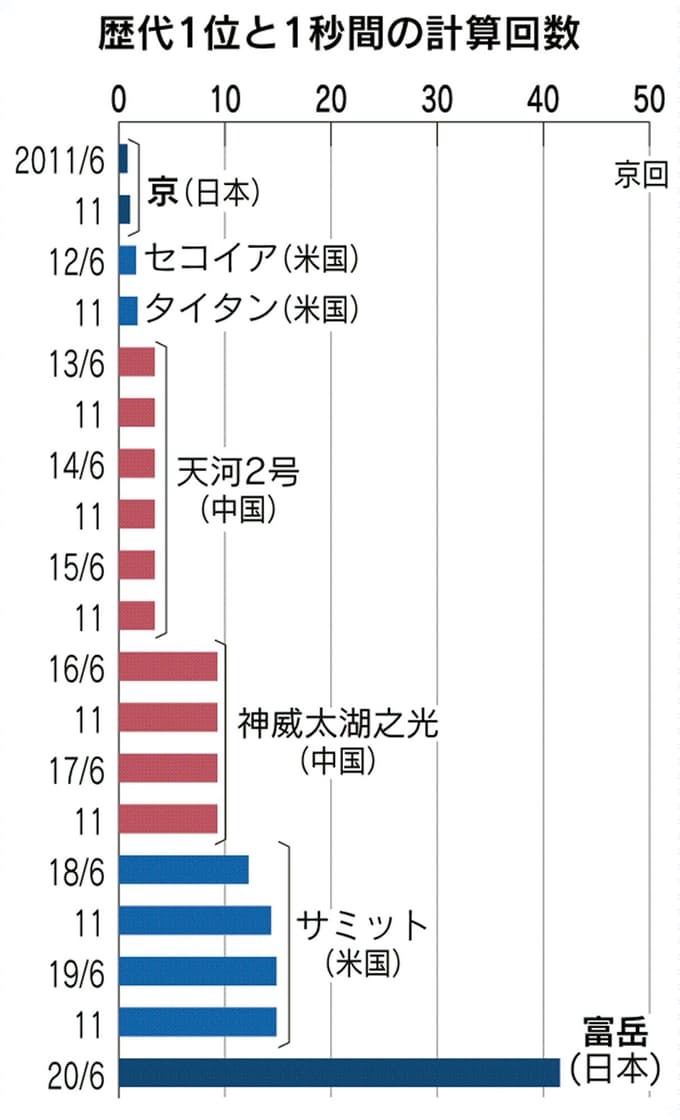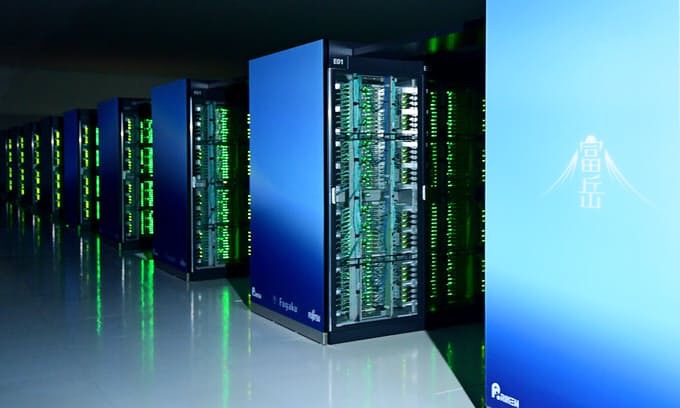

RIKEN: Fujitsu’s supercomputer “Fugaku”: Regaining the world’s highest after eight and a half years
RIKEN:
On June 22, the latest world ranking that competes in the calculation speed of supercomputers was announced.
“Fugaku,” developed by RIKEN and Fujitsu, has won the top spot.
It’s been eight and a half years since Japan was the best in the world
It opened a hole in the two strong regimes of the United States and China, which are leading high-speed computer development.
With the arrival of the digital society,
The evolution of high-speed computers is due to
Material search,
Artificial intelligence (AI)
Bring innovation to utilization.
With the advent of Fudake, companies and universities can use the newly acquired computing power for excellent results.
Nihon Keizai Shimbun
https://r.nikkei.com/article/DGXMZO60655390S0A620C2MM8000?n_cid=NMAIL007_20200623_A&s=4
Japan’s “Fugaku” Supercomputer Rated World’s Most Powerful
Tokyo, June 23 (Jiji Press)
Riken said Tuesday that
“Fugaku,” being developed jointly by the Japanese government-linked research institute and other entities including Fujitsu Ltd. <6702>,
has been declared overwhelmingly the most powerful supercomputer in the TOP500 and three other global ranking categories.
It is the first time for a Japanese supercomputer to rank first on the TOP500 list since Riken’s K computer claimed the No. 1 spot in June 2011 and November the same year.
Fugaku, installed at the Riken Center for Computational Science (R-CCS) in the western Japan city of Kobe,
achieved around 416 petaflops, or quadrillions of floating-point operations per second, some 2.8 times more than roughly 149 petaflops for the second-ranking Summit supercomputer in the United States.
The calculations
were conducted by approximately 95.6 pct of Fugaku’s some 159,000 central processing units mounted on 432 computer racks.
The machine
is expected to achieve even faster computing speeds through future software improvement, according to the Japanese team.
The Japanese supercomputer
also ranked top in the High Performance Conjugate Gradients benchmark, which measures calculation speed for computer programs such as those for commercial use, the HPL-AI benchmark, measuring computing performance for artificial intelligence, and the Graph500 rating of a computer’s ability to analyze graphs, important for big data processing.
JIJI PRESS